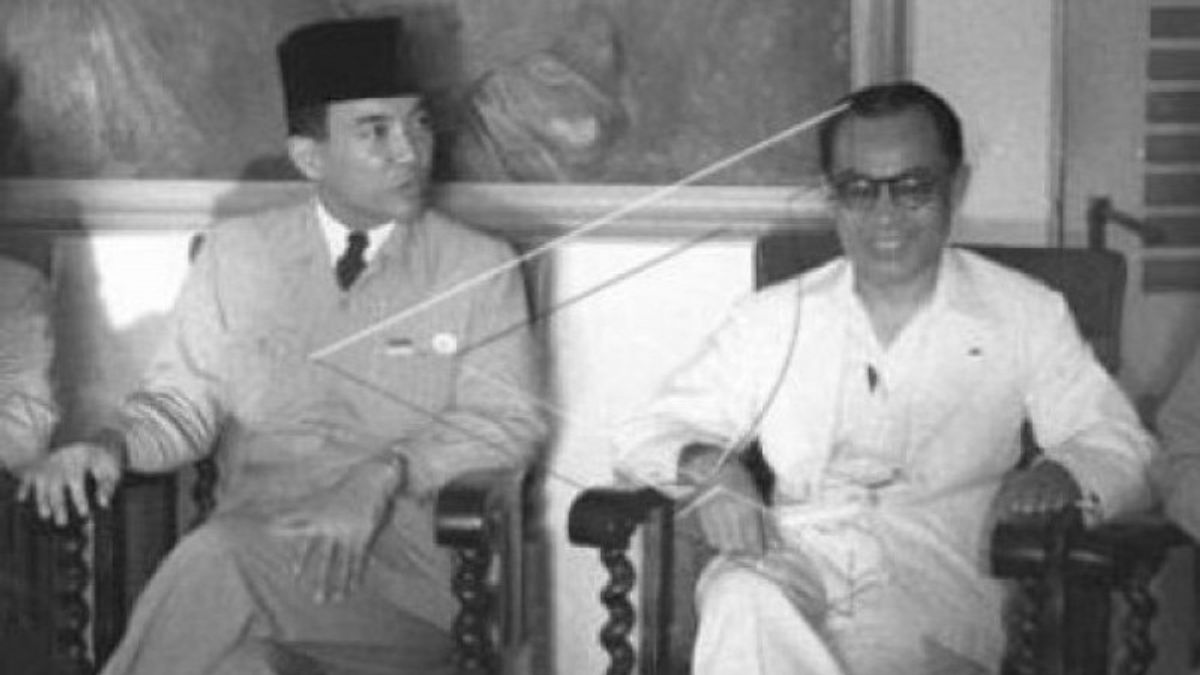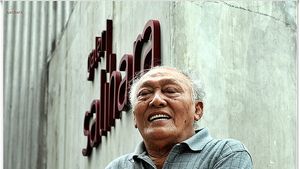JAKARTA - Independence fighters, Soekarno and Hatta often sparked a spirit of resistance against Dutch colonialism. The efforts were made by both of them from the pulpit to the pulpit. There is no tired word for that. The results are brilliant. The awareness of the independence of the bumiputras increased.
The Dutch colonialists were furious, not playing. The owner of the power asked both of them not to talk much. The Dutch considered Soekarno-Hatta's words dangerous for the existence of colonialism. Threats were perpetuated. Prison and exile became a teaching.
The existence of Dutch colonialists in the archipelago has been going on for a long time. They are willing to do whatever they can to perpetuate their power. Moreover, every time there is a eruption of resistance, the colonial government of the Dutch East Indies often has a lesson.
However, that does not mean the Dutch have no fear. It may be the only thing that makes their fear peak is the awareness of the bumiputras of independence. This narrative is a big threat to the existence of Dutch colonialism. Mainly because of this awareness, many freedom fighters were born.
Soekarno, one of them. The flames of the struggle for independence have been played by him since he was a student at Technische Hoogeschool te Bandoeng (now: Bandung Institute of Technology). He is active with other fighters to spread the spirit of breaking out of the shackles of colonialism.
Colonialization on earth must be abolished, he said. He, who was considered a radical Dutch party, also founded the Indonesian National Party (PNI) as a political vehicle in 1927. Since then he has participated in safaris to various regions, from the pulpit to the pulpit.
The goal was none other than to burn the spirits of the bumiputras. The movement irritated the Dutch by no means. They asked Bung Karno not to talk much. However, Bung Karno did not heed the slightest point of the Dutch.
His voice was later suppressed by a prison sentence. Banceuy prison and Sukamiskin Prison. After that he, who was released, was arrested again in 1933. However, he was no longer imprisoned for a long time. The Dutch wanted Bung Karno to be exiled to Ende, then Bengkulu. Everything so that Bung Karno would not be noisy.
"It took eight months until the day I was already in detention. This retention was not caused by a special incident. My mistake was just because I didn't close the big guy as they expected after I got out of prison."
Commissioner it caused me: Mr. Sukarno, sir cannot change. There is no hope that your behavior can be good again. According to our records, you are only a few hours as a free person when you take the train to Surabaya, then you make another mess again and since then you haven't stopped making a fuss. So now it is clear for the Sri Ratu Government that you are always being stubborn, "said Bung Karno as written by Cindy Adams in the book Bung Karno: Connecting the Tongue of the Indonesian People's Tongue (2008).
The prison and exile that the Dutch gave to Soekarno was based on the contents of the era Criminal Code. Anyone caught expressing feelings of hatred or hostility in writing or verbally to the Dutch, can be subject to a high sentence.
The Dutch hope that there will be a deterrent effect from Bung Karno's exile. In fact, it is far from wild. The behavior of other freedom fighters did not necessarily fade. Bung Hatta, for example. The young man who had been detained in the Netherlands had considered prison a risk of struggle. That was what was then imprinted on his mind when he returned to Indonesia.
Fear has been thrown away by Hatta. He was even more active in carrying out Indonesia's struggle for independence. The narratives containing the awareness of independence continue to be voiced. From the pulpit to the pulpit. The Dutch were furious. Hatta was considered a inciter because of a lot of talk.
The stamp did not make Hatta afraid. He was even more massive in spreading the spirit of independence. Alias, Hatta was getting noisy. The Dutch also ran out of patience. The only option to reduce Hatta is prison.
Prison options made Hatta and his friends languish in Glodok Prison (now: Harco Shopping, Jakarta City) on February 25, 1934. The detention was considered by the Dutch as a success. Because Hatta's noisy voice was no longer heard. However, because of Hatta's potential in burning the spirits of the great natives, he was immediately exiled to Boven Digoel, then to Banda Neira.
"In September I was asked to come to the government office for internal affairs. I already felt that it was related to my internirment to Boven Digoel. A Dutch employee at the office, I suspect his rank is a controller, asking me some questions related to my activities with politics and movement.."
"He also informed me that there has been a government determination that I will be chained at Boven Digoel. In the end, he asked if I would say a few things to defend myself. No, because it was just a formality. After that he said that I could go back to Glodok, "explained Bung Hatta in the book Mohammad Hatta: Memoir (1979).
The English, Chinese, Japanese, Arabic, and French versions are automatically generated by the AI. So there may still be inaccuracies in translating, please always see Indonesian as our main language. (system supported by DigitalSiber.id)









